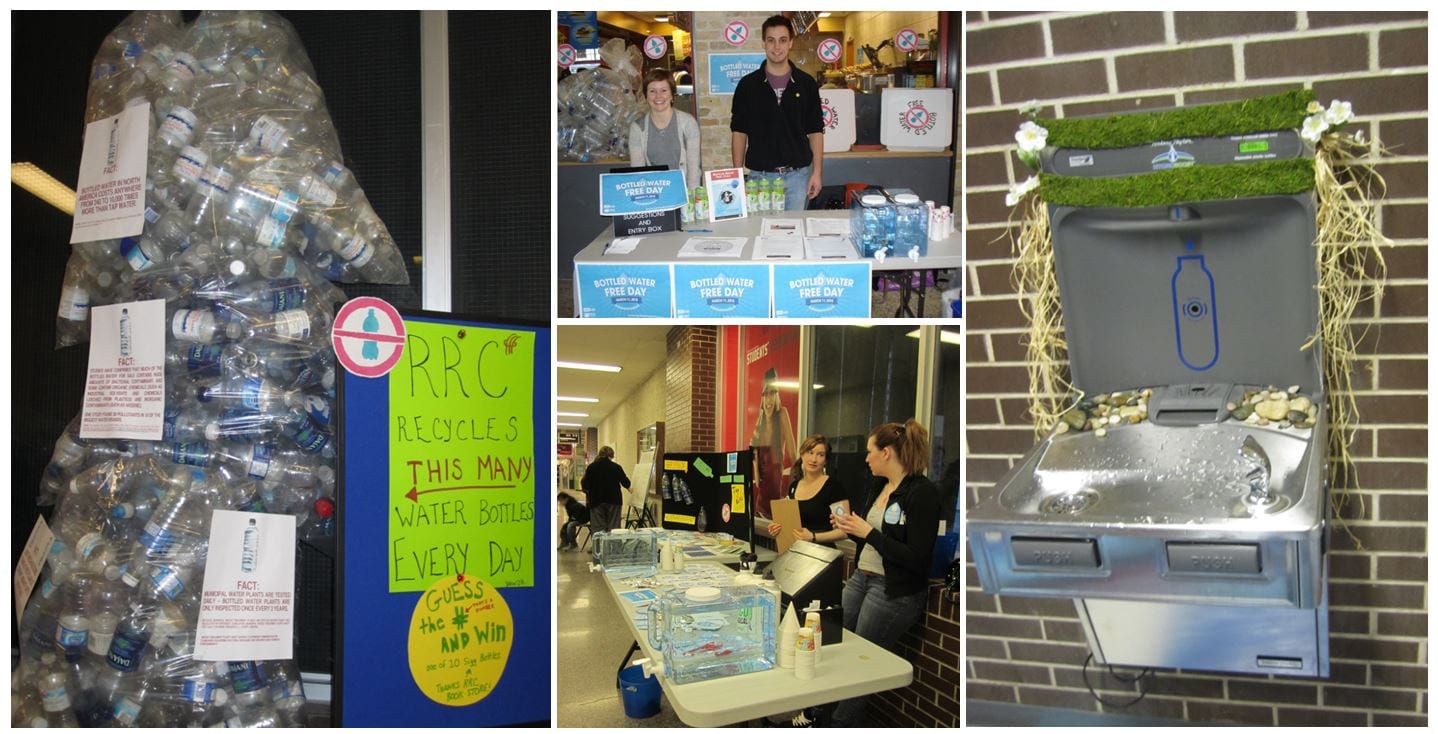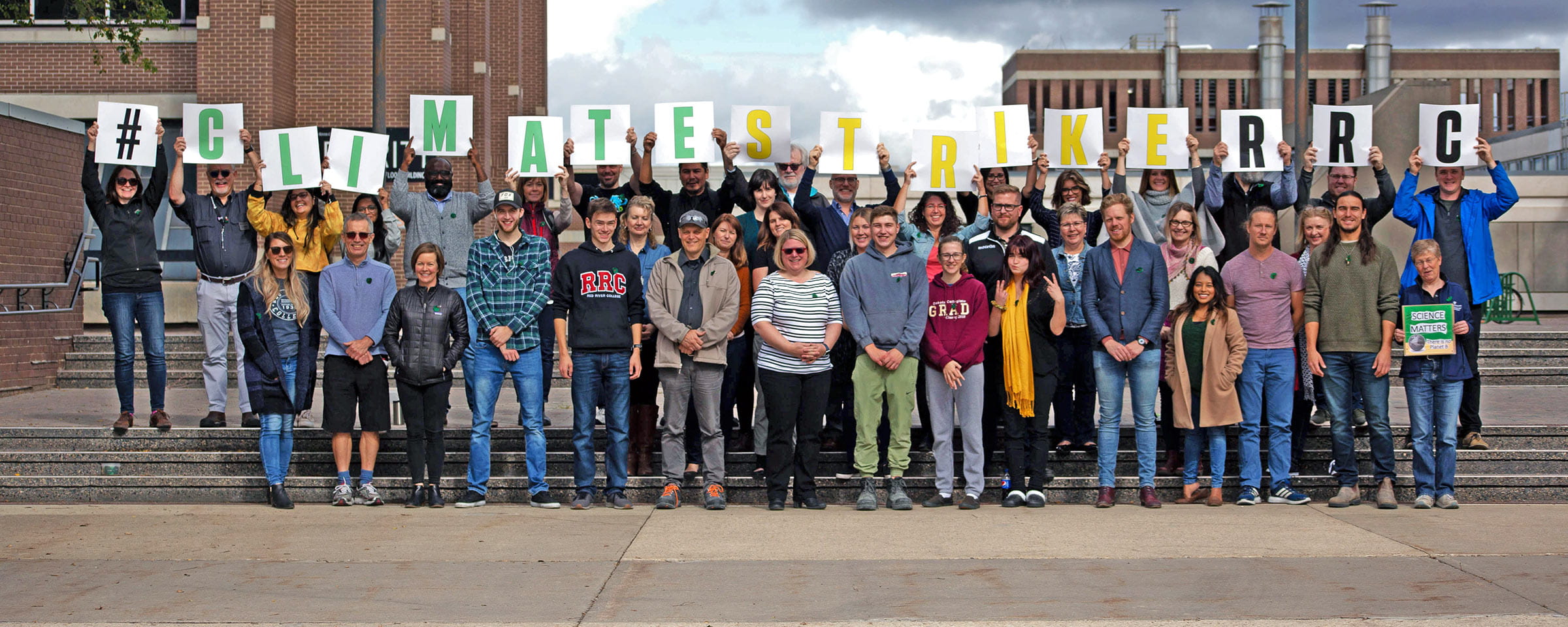RRC marks Bottled Water Free Day
Bottled Water Free Day is a nation-wide event that raises awareness about the issues and impacts of bottled water. March 19, 2014 marks the 4th year that Red River College is participating in the event.

Over the past two years, we’ve spent more than $70,000 to retrofit campus water fountains to chilled, re-usable bottle fill stations. We encourage students and staff to “ditch the Dasani” and say “no to Nestle” and quench their thirst at one of the fountains scattered throughout our campuses. Sales of bottled water on campus have declined by 7% since we undertook these retrofits. But after Coke, bottled water is still the second most consumed cold beverage on campus.
Effecting behavior change starts with information. So here are some reasons for you to consider going “back to the tap”.
Water Safety: Bottle or Tap There is a widespread belief that bottled water is safer than municipal water. Yes, there have been some major and tragic events with respect to municipal drinking water that have shaped this belief. In Canada, tap water is regulated by provincial/ territorial or municipal bodies. Hundreds of water tests at all stages of treatment happen throughout the process. Bottled water is considered a “food product” and falls under regulation of the Food and Drugs Act and Regulations. Water bottling plants are inspected an average of once every 3 – 5 years.
In Winnipeg, our $300-million Water Treatment Plant opened in 2009. As a result of the new technologies in the water treatment process, Winnipeg’s drinking water is tested more regularly than provincial regulations and is of a higher quality than water guidelines set out by Health Canada. Find out how our drinking water travels from Shoal Lake, Ontario to your faucet in this very cool virtual tour of our Water Treatment Plant.
Water as a Commodity In 2010 the United Nations General Assembly recognized that safe, clean, accessible and affordable drinking water is a human right. By bottling and selling water, companies are making a profit on a resource that should be accessible for all.
Environmental Impacts of Bottled Water The cycle of packaging, transporting and disposing of water bottles creates a large amount of energy, which translates into greenhouse gas emissions. The two primary raw materials of plastic bottles, PTA and MEG, are toxic chemicals derived from crude oil. It takes 3 million barrels of oil to make and transport the 2 billion litres of bottled water consumed in Canada every year.
Consider the distance and energy used for shipping Fiji Water, derived from “tropical rainfalls purified slowly by equatorial trade winds” or San Pellegrino, “the Art of Living is a manifesto for everyone who wants to savor the best in life.”
- Fiji Water: Distance travelled to Winnipeg = 11,135 kilometers
- San Pellegrino: Distance travelled to Winnipeg = 7,248 kilometers
- Shoal Lake (municipal water source): Distance travelled to Winnipeg = 276 kilometers
Looking for more info on the issue? Check out some of these shorter (and longer) films!
https://www.youtube.com/watch?v=yf64t6TkoBY
https://www.youtube.com/watch?v=B1a3tjqQiBI
